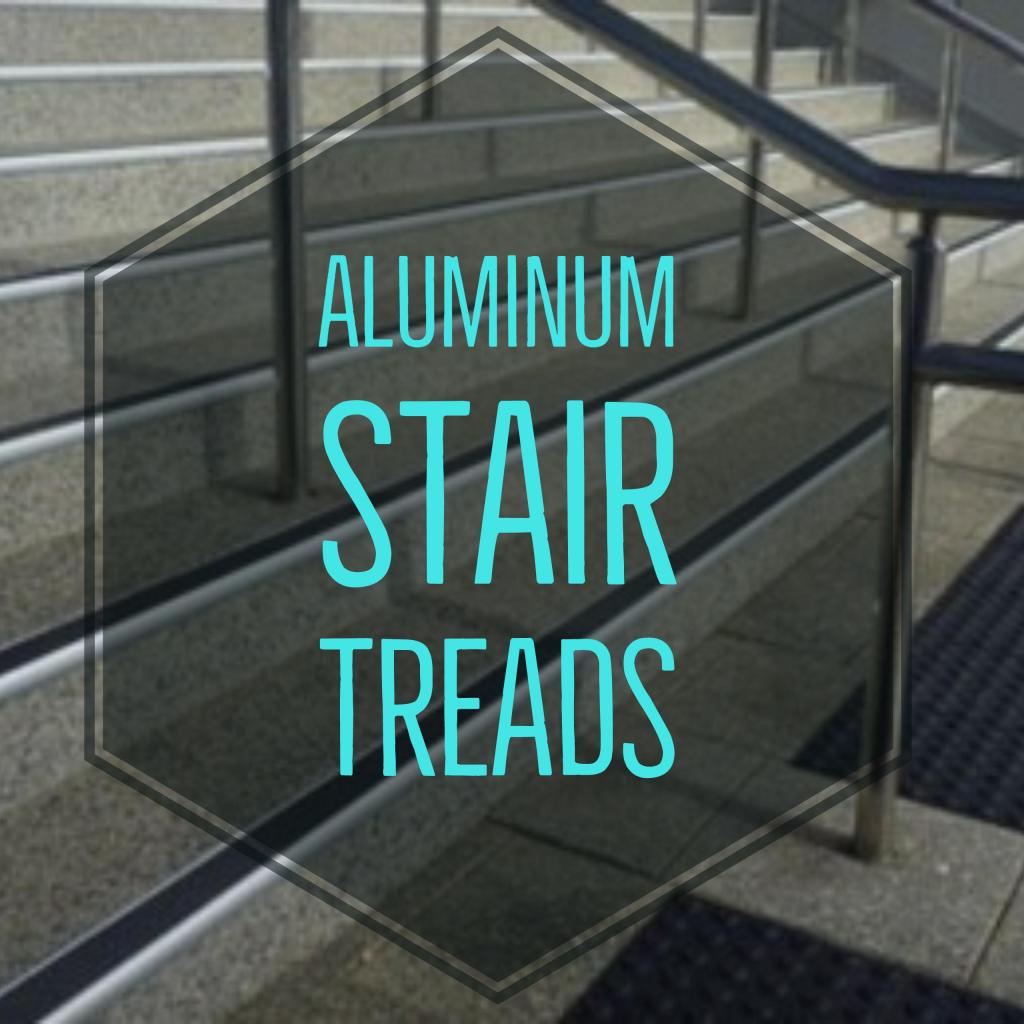Metal stair treads are nothing new. Because of its inherent strength, steel has long been used in commercial and industrial settings, as well as multi-unit residential facilities. But recent innovations in the manufacturing of aluminum stair treads offer real advantages over traditional tread materials.
Advantages of Aluminum Stair Treads
Like steel, aluminum is also capable of high load-bearing strength. I-bar aluminum grating, for example, is a strong, lightweight alternative to steel treads.

And while wood remains the most common tread material in single-family homes, aluminum is becoming a stylish, economical, and durable choice for many home-builders. Even when hardwoods are selected, aluminum remains the preferred means of protecting these treads.
The greatest advantage offered by using aluminum stair treads is most likely safety.
Treads & Nosing for Accident Prevention
Falls are the leading cause of workplace injuries, and stairways are responsible for an inordinate number of those incidents.
- Falls are responsible for nearly 50% of all workplace injuries, with over 300,000 of these incidents resulting in work absence.
- Stairway related falls are one of the leading causes for workplace injuries, with an estimated four fatalities every year.
- Of those injured in stairway related accidents, 65% require medical attention.
Clearly, unsafe stairways pose high risks for loss financially and in manpower; but, the threat isn’t limited to workplace environments. Consider these statistics for fall injuries in the home:
- Falls are the leading cause of unintentional deaths in the home, claiming an average 6,000 lives every year.
- Nearly 100,000 children under the age of 5 are taken to hospitals for stairway related falls – 25% of those injuries were to infants being carried up or down stairs by an adult.
- Every year, 300,000 seniors are hospitalized for hip fractures, and 95% of those injuries are fall-related.
While no one solution can prevent all stairway injuries, outdoor stair treads are widely advocated for reducing the potential of an incident. Homeowners need not replace an entire wood staircase, either; aluminum non-slip treads are cost-efficient and easily mounted to wood surfaces in just minutes.
Types of Aluminum Stair Treads
Aluminum stair treads are available in two styles of grating – bar or plank:
Bar grating
Naturally resistant to corrosion, non-sparking, and enjoys a strength-to-weight ratio not found in wood, metal, or cement stairs. These qualities make bar grating attractive to industrial environments.
Plank grating
Offers an aesthetically pleasing alternative to bar grating while providing high durability and strength. Plank grating is the choice for many commercial and residential environments, and is often found in schools and gymnasiums. And style options are virtually limitless.

